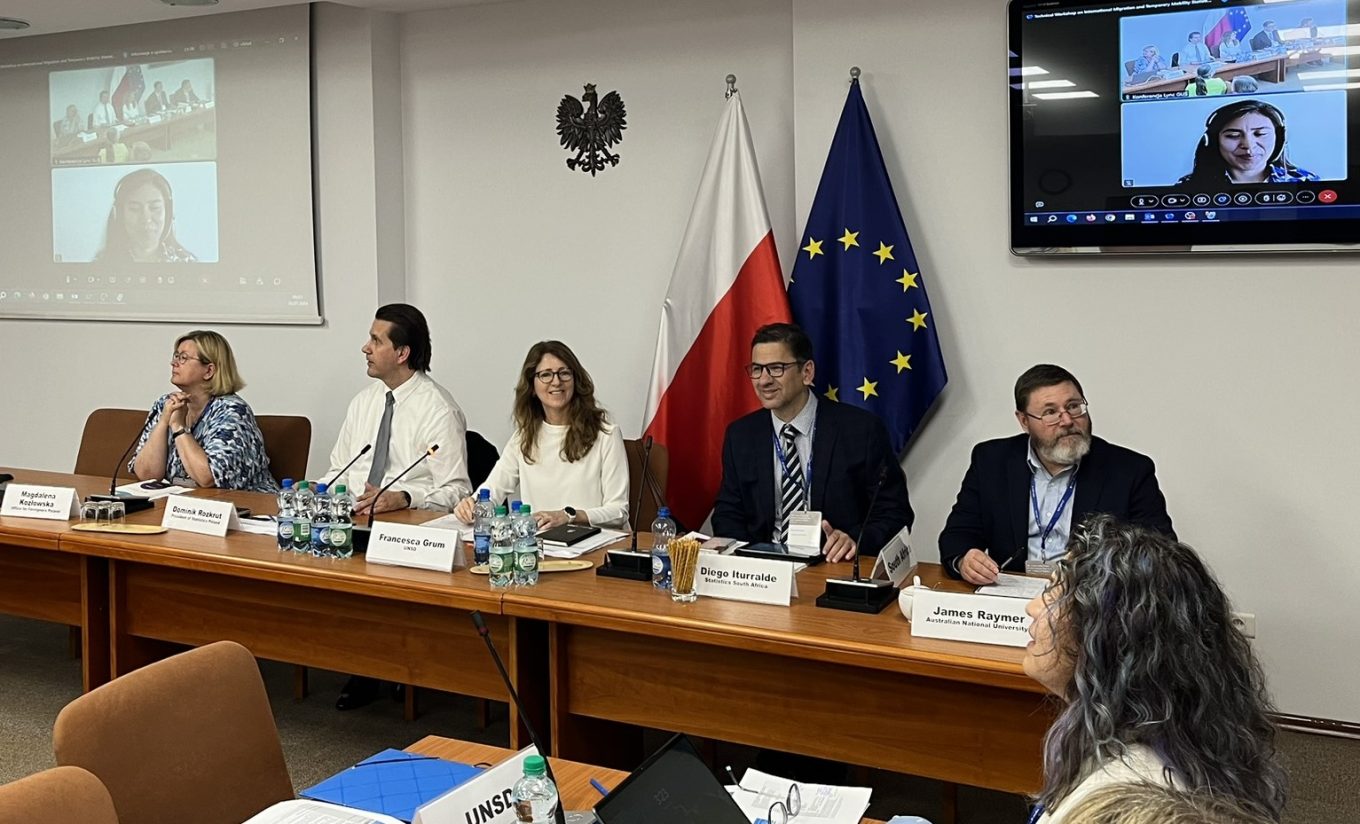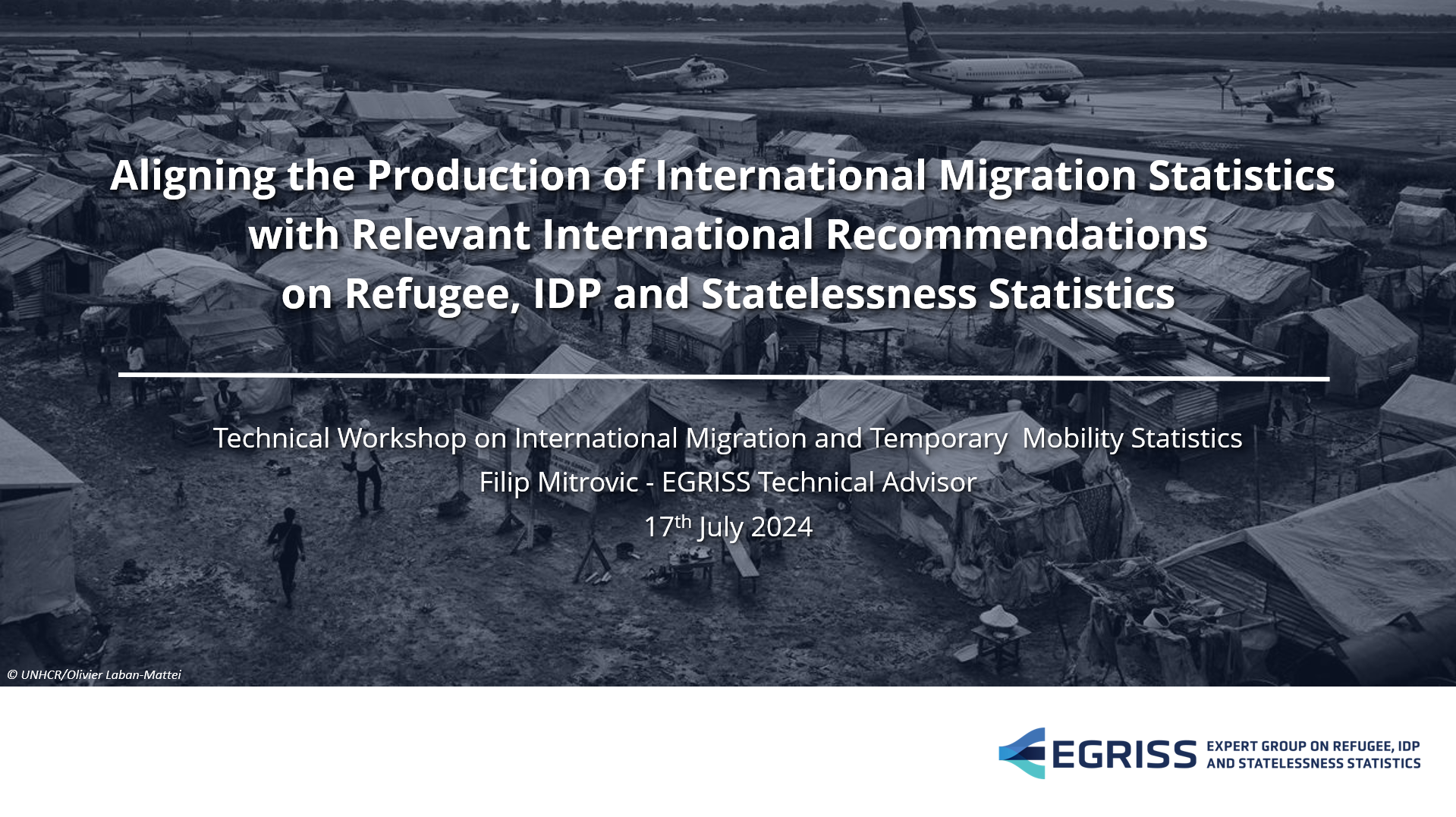17th July 2024
The EGRISS Secretariat and diverse EGRISS members participated in the Technical Workshop on International Migration and Temporary Mobility Statistics, organised by the United Nations Expert Group on Migration Statistics (EGMS) in Warsaw, Poland, from the 16th to 19th July. EGRISS Technical Adviser, Filip Mitrovic presented on the second day, highlighting the importance of aligning the production of international migration statistics with the relevant international recommendations on Refugee, Internally Displaced Persons, and Statelessness Statistics, and discussing opportunities for better orientation, including those associated with conceptual, technical, and operational aspects. Representatives from the United Nations Statistics Division (UNSD), the Economic Co-operation and Development (OECD), and the International Labour Organization (ILO) also presented.
To exemplify the importance of such alignment, beyond the conceptual touchpoints between the different frameworks, half of the SDG indicators identified as priorities for disaggregation based on displacement status are also included among the core indicators used to monitor migration policy. This overlap underscores the interconnectedness of these two critical areas and highlights the potential for synergies in data collection and analysis. Among the possibilities, participants talked over further collaboration between expert groups through EGRISS’ Capacity Building & Regional Engagement Technical Subgroup and similar EGMS body.
“Further inclusion and visibility of forcibly displaced populations in data collection and production of national statistical systems and use of comparable statistical frameworks and categories for refugees and IDPs is linked to how aligned are revised migration and EGRISS recommendations”.
– Filip Mitrovic, EGRISS Technical Advisor
On the first day of the workshop, discussions focused on expanding national capacities for production of migration statistics in different settings of statistical systems and operational issues and on the challenges associated with the revised conceptual framework for statistics on international migration – in particular, the pros and cons of data sources to produce relevant indicators as endorsed by the UN Statistical Commission. A high-level panel discussion with panelists from the Polish Office for Foreigners, the Australian National University, Statistics South Africa, and Statistics Poland was held to make the case for international migration statistics, providing a space for dialogue between users and producers of migration data.

On the second day, activities centered on discussing macro and micro data integration methods as useful solutions to produce international migration statistics and their conceptual and operational nexus with relevant global standards. The objective of the third day of the workshop was to outline opportunities and strategies for phased improvement of data collection and production, to review the use of non-traditional data sources to produce international migration and temporary mobility statistics, and to exchange experiences in monitoring core indicators for disaggregation.
On the last day, participants discussed the potential monitoring mechanism of the Global Compact on Migration and communicational relevant for statistics on international migration and temporary mobility. Efforts of national, regional and global stakeholders to enhance countries’ statistical capacities were outlined, with a view to supporting the implementation of the revised conceptual framework.

